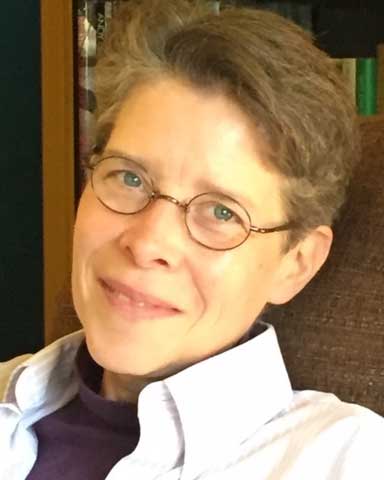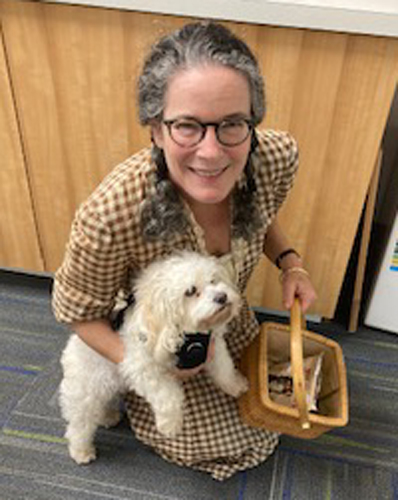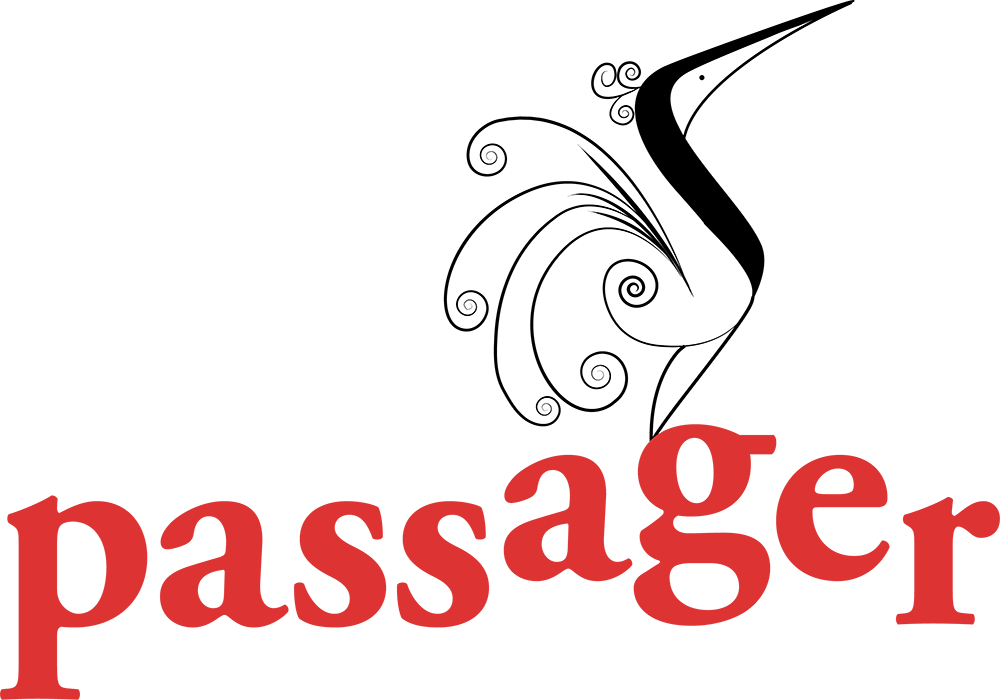Eva’s Picks



The pieces that impacted Passager intern Eva Fraser, featuring work by Kirsten Backstrom, Dori Hale and Rachel Eisler.
8 minutes
TRANSCRIPT
“Before starting my internship with Passager, I mostly read work by younger writers; I only looked at the world through a lens I was familiar with. Now that I’ve read work by Passager writers and talked with several of them, I see how much age matters in writing. In every work I’ve read, embedded within is an abundance of wisdom and perspective that isn’t always as present with younger writers.”
That was Oberlin College sophomore Eva Fraser reflecting on the Passager authors she read during her January internship. On this episode of Burning Bright, a few pieces that resonated with Eva.
Eva said . . .
“Coming from a family of therapists, I especially appreciated Kirsten Backstrom’s memoir ‘Walking Around the Block’ from Issue 74. I like how it explains trauma, its origin, human nature, and memories in a nuanced and accepting way.”
Kirsten’s memoir reflects on the lingering effects of her parents’ serious car accident when she was young, including the graphic pictures she and her sister saw that were taken at the scene, as well as afterwards. Here’s an excerpt.
The family mythology of the Accident, accompanied by graphic images, fed an adrenaline addiction in me that the culture at large cultivates in all of us. We seem to trade in shock stocks that are always on the rise. So I came to associate the alarming, painful events depicted in those photos with being energized and alive. The quivering thrill of catastrophe is incomparable. Whether it’s experienced directly or just stimulated by a story, this perceived danger drives the autonomic nervous system to pour every bit of life force into survival, pumping us full of an energy so compelling that we cannot help but live.
Afterward, we’re exhausted – almost high, but also empty. The way it’s supposed to work, once the danger is past, the body rests and returns to equilibrium, reminded by a calm environment and caring people that safety is possible, that ordinary stimulation is enough to live on. But if the danger signal gets sent again and again, then there’s no reassurance, no escape, no return to normal. There is no normal. A final burst is kept in reserve for emergencies, but after a while everything looks like an emergency and we’re constantly firing off what little we’ve got at nothing, wasting our life force on nothing. Worst of all, we become fundamentally disconnected from ourselves, and especially from all the other people who seem to have gone on without us.
Our culture sets us up for easy adrenaline addiction through violent entertainment, stressful competition, high-risk short-term pleasures. Yeah, yeah, we’ve heard it all before, but we’re addicted so we don’t do anything about it, or can’t do anything about it. Maybe I believe that I’m only alive when my body’s playing out a life-or-death scenario in my imagination if not in action.
An excerpt from Kirsten Backstrom’s “Walking Around the Block” from Passager Issue 74, the trauma issue.
Here’s Eva again.
“I love poems that change the speaker’s perspective at the end, revolutionizing their purpose or making them question their choices. It prompts reflection for the reader, too. Dori Hale’s ‘From Here to There and Back’ is one of those.”
In the beginning, the parents
said God was in heaven.
The girl believed them
because her dog was up there, too
which made it a nice place to be.
She saw him running in the grass, free.
The mother seemed especially fond of heaven:
when someone died, she came alive,
even if with tears,
more alive than a daily blank face devoid of any clue
that life on earth could be interesting.
Good grief! – the action was in heaven
the girl thought,
the burden of life on earth transformed by the sweet alchemy of death
into a roseate glow, a goal achieved.
Her mother would love her
if only she were to die.
Looking for heaven, the girl struck out
for space, stayed alone
in a distant orbit around her worldly existence,
a small moon to herself.
In the end, looking down at the earth,
she heard the astronaut say,
“ . . . the earth is so small
and so fragile,
a precious little spot in the universe
whose boundaries are the boundaries of an unbounded god.”
He said he loved it,
grieved for it, marooned in darkness.
Dori Hale’s “From Here to There and Back” from Passager Issue 75.
Here’s what Eva Fraser said about Rachel Eisler’s poem “Spells.”
“I love words, and Rachel’s poem makes words come alive. It suggests that words have a motive, and that even the shapes we make with our mouths to pronounce them affects us. The poem insinuates magic into the ordinary.”
“Spells” begins with the epigraph ‘for Ellen Lupton.’
Batman’s Boff! and Biff!
Biff Loman’s yowl:
all loss.
His name’s a fat lip.
Words’ damned
sound and shape
spells their half-life.
The silent n
in damn hums
a grudge
under the tongue.
No denies.
Never.
Not. None.
No one ever!
Yet Yes
stretches into
smile, widens
the possible.
Do these spells bore you?
Saying bored
makes my mouth
admit to yawning.
If you’re tired,
here’s bed with its
headboard and footer:
sleepy e tucked in.
Good Night’s bright i
winks and blinks
in its silent thicket.
From Passager Issue 75, Rachel Eisler’s poem “Spells.”
To subscribe to or learn more about Passager and its commitment to writers over 50, go to passagerbooks.com. You can download Burning Bright from Spotify, Apple and Google Podcasts, and various other podcast apps. Passager offers a 25% discount on the books and journal issues featured here on Burning Bright. Visit our website to see what’s on sale this week.
Again, thanks to intern Eva Fraser for her help with this episode. For Kendra, Mary, Christine, Rosanne, and the rest of the Passager staff, I’m Jon Shorr.
Due to the limitations of online publishing, poems may not appear in their original formatting.



